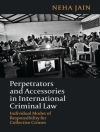Do Member States of the EU have a free hand in drafting Accession Treaties, or are there legal constraints on their primary law-making powers in this regard? That is the main question this book addresses. It argues that such constraints do exist, and seeks to identify them, thereby providing a number of insights into the nature of the EU’s legal order. The point of departure as well as the main focus of the study is the proposed permanent safeguard clause (PSC) on the free movement of persons in the Negotiating Framework for Turkey. Legal provisions, rules, principles and norms that might constrain Member States in this regard are identified with reference to the PSC.
The book examines constraints on Member States stemming from three sources of EU law: Association Law, based on the existing legal framework built on the EEC-Turkey Association Agreement (Part I); EU Enlargement Law, comprised of past practice and existing EU rules on enlargement (Part II); and the foundationsof EU Constitutional Law (Part III), which constrain Member States whenever they act within the scope of Union law both as primary and secondary lawmakers. Part III reveals what the Court of Justice of the EU considers to be the essence or the ‘very foundations’ of the Union’s legal order, which it protects against encroachment. This is similar to what some constitutional courts do to protect the ‘inner unity’ or ‘basic structure’ of their constitutions.
The findings of this book can be applied to the accession of any candidate state. It also sheds light on important implications for future treaty amendments, and for identifying possible limits to differentiated integration.
Innehållsförteckning
1. General Introduction.- Part I: Legal Constraints flowing from EEC-Turkey Association Law. 2. Association as a stepping-stone to membership.- 3. The Ankara Association Law.- Part II: Legal Constraints Flowing from the Accession Process. 4. Procedural Constraints.- 5. Substantive Constraints.- Part III: Legal Constraints Flowing from the Constitutional Foundations of the Union. 6. Constitutional Foundations of the Union as a Constraint on Primary Law Making.- 7. The Principle of Equality as Part of the Constitutional Foundations of the Union: A Case Study.- 8. General Conclusion.
Om författaren
Narin Idriz is a researcher and co-leader of the Global Europe project at the T.M.C. Asser Institute where she specializes in EU external relations law. Narin has Master degrees in International Human Rights Law (Essex University) and European Business Law (Leiden University). She worked as a Ph D fellow at the Europa Institute of Leiden University where she defended her doctoral thesis in May 2015. Before joining the T.M.C. Asser Institute in September 2017, Narin worked as an Assistant Professor in the European Law department of Utrecht University. She is currently a member of the Human Rights Committee of the Advisory Council on International Affairs to the Dutch government and parliament.












